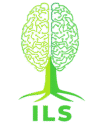
Executive Function
How To Cope With Executive Function and Hoarding
Wesley Thurman MS Ed
17 June, 2022
In the workplace, Executive Function is the ability to plan, organize, complete daily tasks, and act proactively. In this context, the term “Executive” refers to the mental management of cognitive and emotional processes to meet goals. People with strong Executive Functions can anticipate problems, solve problems creatively, and learn from their experiences. They have high motivation, energy, optimism, self-esteem, and self-efficacy.
What Is Executive Function
Executive functioning is the ability to plan, organize, and carry out daily tasks. The term executive in this context refers to the mental management of cognitive and emotional processes to meet goals.
Executive functions are not innate talents but skills that must be learned through practice and experience. Children develop through interaction with others, play, and structured activities such as sports, music lessons, or school clubs.
The following categories characterize executive function:
Planning: Organizing steps in a sequence to achieve a goal; includes monitoring progress toward a goal and adapting plans when necessary to stay on track
Organizing: Arranging items in an efficient manner; includes prioritizing self-care tasks and remembering where things are located
Flexibility: Adapting plans or actions when needed; includes using alternative approaches when things go wrong, or there are interruptions
Attention: Keeping the focus on ongoing tasks while resisting distractions; includes dealing with multiple demands simultaneously; shifting attention flexibly between different types of information (e.g., visual vs. auditory)
Evaluation: Monitoring one’s own performance while interacting with others (e.g., judging how well one is doing at meeting goals)
Hoarding
Hoarding can be a severe problem, and it can cause you to become isolated from others and have problems with your health, safety, and finances. Hoarding is a symptom of a more significant problem, and it has nothing to do with being lazy, not just “messy,” and is not a character flaw. It’s an illness that must be treated like any other mental health issue.
Hoarding can result in dangerous living conditions, mainly if fire hazards result from clutter blocking exits or electrical outlets being covered by debris.
Some people with hoarding tendencies also experience anxiety about organizational tasks such as cleaning up after themselves or paying bills on time — these are examples of executive functioning issues that affect many people who live with ADHD.
Executive Functioning and Hoarding
Executive function is the ability to plan, organize and complete tasks. It includes working memory, attention, self-control, and using language skills. Hoarding affects executive function because it causes clutter, preventing people from completing tasks. This leads to frustration for the person who hoards and others who live with them or work with them.
Hoarding is a symptom associated with many mental illnesses and neurological disorders. People who hoard usually have an obsessive need to collect items others may not see as valuable or useful. For example, they may collect newspapers, magazines, and junk mail because they believe these items will be useful in the future. Hoarding also occurs when people have difficulty parting with possessions due to feelings of attachment or anxiety about discarding items that might be needed at some point in the future.
Coping Strategies
If you or your loved one has hoarding tendencies, here are some coping strategies that might help:
Learn about hoarding. The more you understand hoarding, the easier it will be for you and your family to cope with the situation. Understanding hoarding and its causes can help you deal with the problem and decide what steps to take next.
Don’t hide things away. If you’re afraid that others will judge or criticize your possessions, get rid of them. If there’s something important to you but meaningless to others, consider giving it away — but only after making sure that it won’t cause problems for someone else if they’re forced to keep it (for example, if it’s broken). If there are completely useless and unsalvageable things but still too precious to throw away (such as old newspapers), consider donating them.
Identify your triggers. The most important thing is to identify what triggers you to engage in compulsive shopping or cleaning and then plan how to handle those situations.
Get help from others. Find someone who can support you when you’re overwhelmed by clutter or the feelings that go along with it (guilt, shame).
Brain circuits. Learn about the brain circuits involved in compulsive buying and hoarding behaviors to understand why they occur and how they affect your life. This understanding can reduce self-blame and shame, which often fuel these behaviors in the first place.
Mindfulness. Try mindfulness meditation practices to help reduce stress and anxiety, which also can fuel these behaviors; another helpful practice is mindfulness-based cognitive therapy (MBCT), which is effective in treating anxiety disorders like OCD (obsessive-compulsive disorder) as well as depression.
Executive function is essential in self-care. Too little makes life difficult, and too much can be just as much of a burden—though not necessarily in the obvious ways. If you have difficulty with executive function, it can be helpful to find strategies for coping with hoarding, but if your difficulty is extreme, professional help may be necessary.
